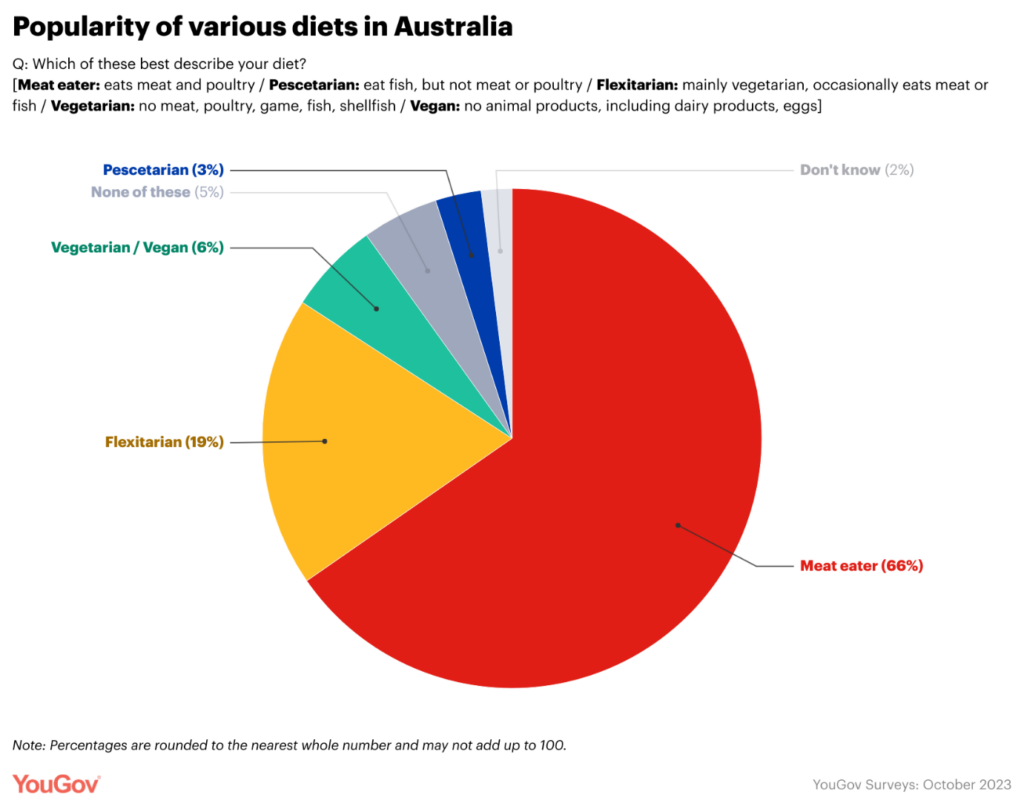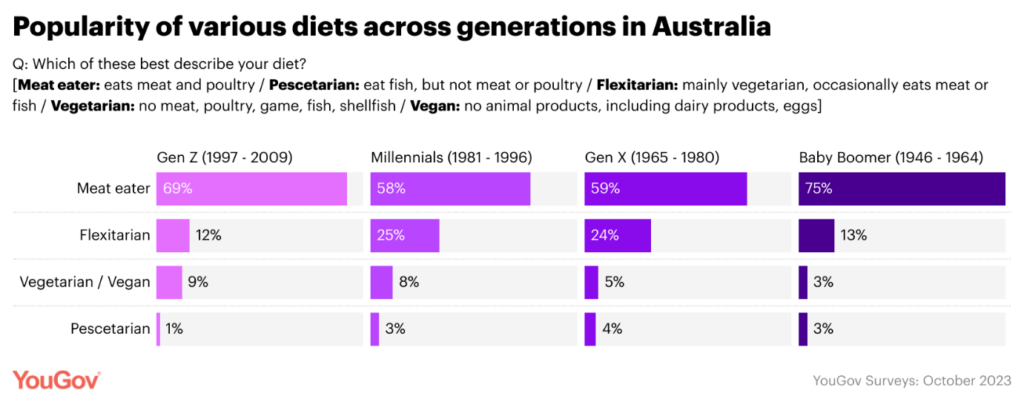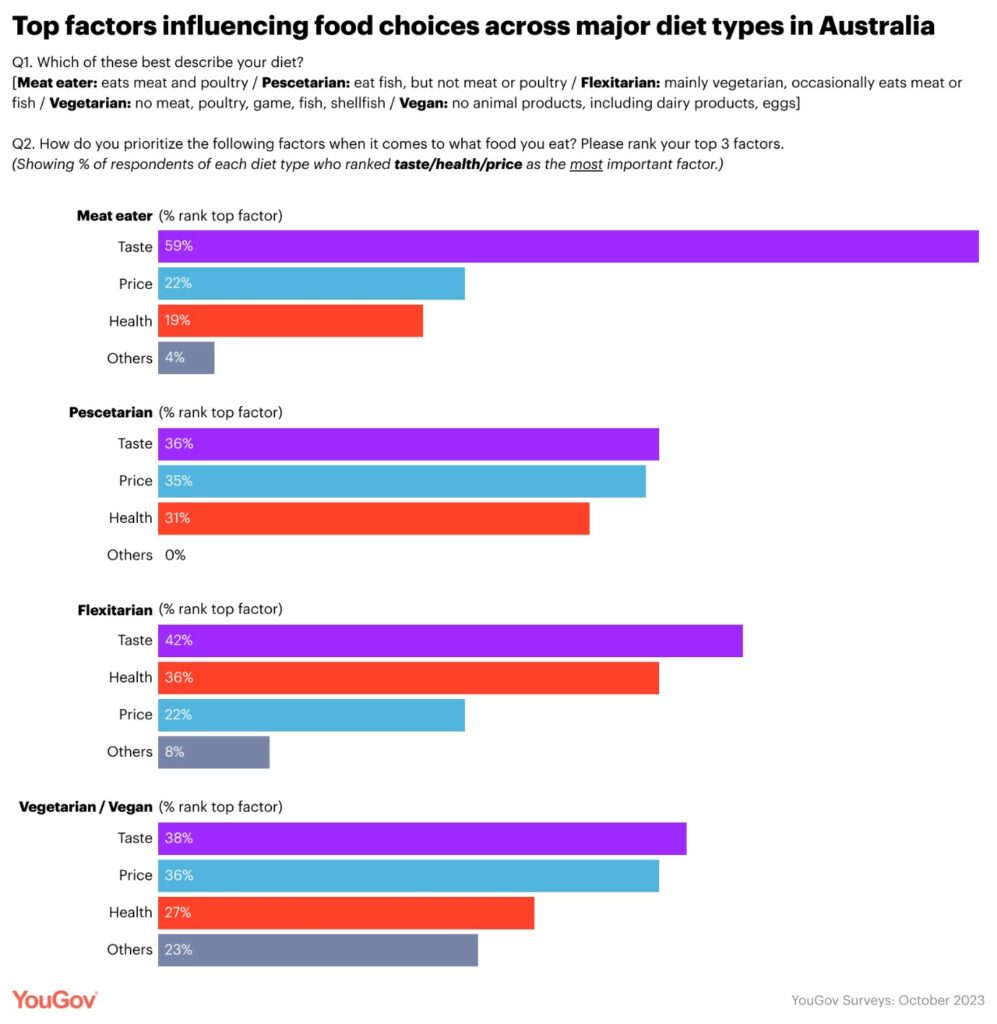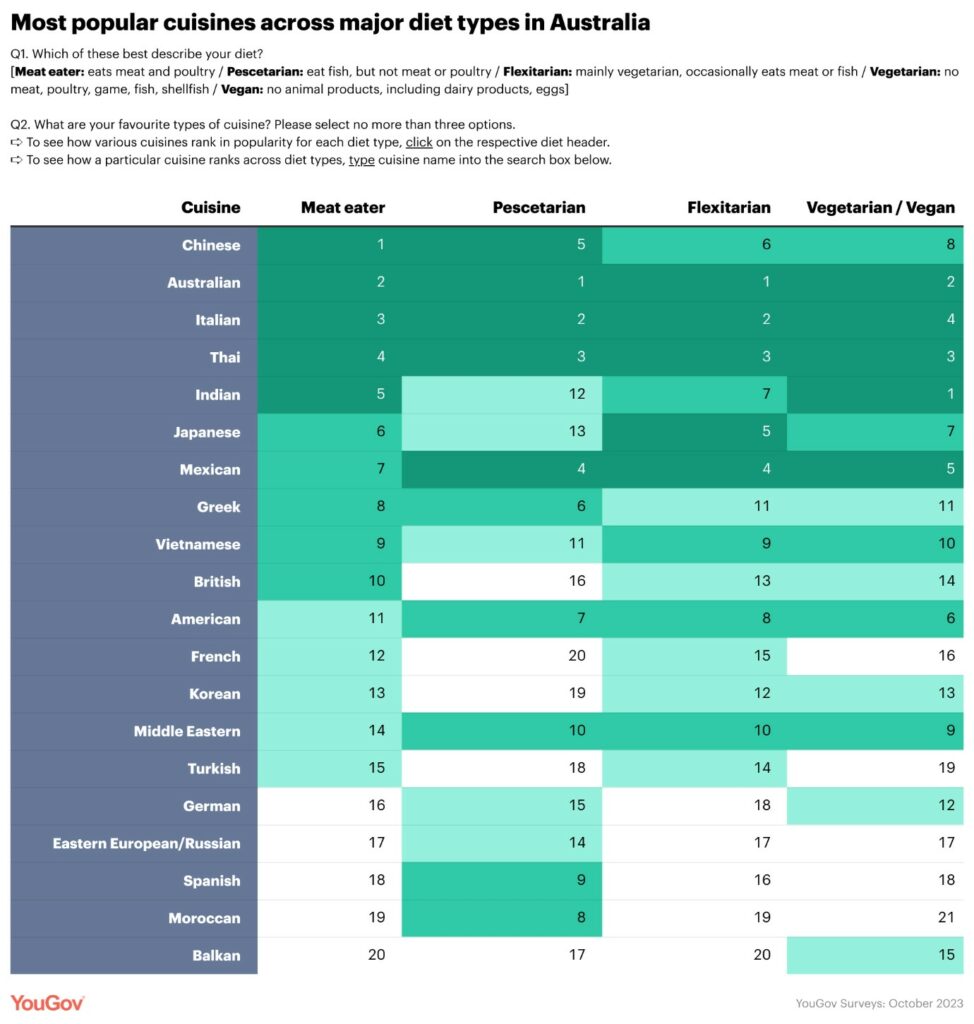Ahead of World Food Day, an illuminating study from YouGov Surveys shines a spotlight on the eating habits of Australians. The research shows that a dominant two-thirds (66%) classify themselves as meat-eaters. Meanwhile, nearly one-fifth (19%) identify as flexitarians, those who majorly relish plant-based diets but occasionally indulge in meat and fish.

For those curious about plant-based consumption trends, the data reveals that a mere 6% have fully embraced a vegetarian lifestyle, potentially excluding all animal by-products like eggs and milk, thereby leaning towards veganism. Furthermore, pescetarians, those who indulge in seafood but refrain from land animal meat, represent a slender 5% of the consumer demographic.
A Generational Glimpse
The generational breakdown adds another layer to this intriguing food mosaic. Baby Boomers overwhelmingly identify as meat eaters, with three-quarters acknowledging their regular consumption of meat or poultry. Contrastingly, less than three in five Millennials and Gen X adhere to this dietary choice.

Moreover, both Millennials and Gen X exhibit a stronger inclination towards flexitarianism, a stark difference when compared to just an eighth of their Gen Z and Baby Boomer counterparts. Intriguingly, Gen Z and Millennials appear more inclined to embrace a pure vegetarian or vegan diet than the older Gen X and Baby Boomer generations.
What’s On The Plate? Prioritising Taste, Price, and Health
Regardless of diet types, taste reigns supreme in the decision-making process, especially for meat eaters. For this group, three out of five consider taste paramount. In comparison, less than half of pescetarians, flexitarians, and vegetarians/vegans share this sentiment.

The cost of food emerges as a vital factor for meat eaters, pescetarians, and vegetarians/vegans, but health tips the scale for flexitarians when deciding their meals.
Australia’s Top Cuisines: A Culinary Carousel
A palate expedition reveals Australian, Italian, and Thai cuisines as the top picks for Aussies. Chinese and Indian dishes trail closely. Interestingly, local Australian dishes remain the primary choice for pescetarians and flexitarians. Meanwhile, Chinese dishes tantalise the taste buds of meat eaters, securing their top spot.

Diving deeper:
- Italian dishes secure the second spot for pescetarians and flexitarians and maintain a position in the top five across all dietary groups.
- Thai cuisine garners third place among pescetarians, flexitarians, and vegetarians/vegans but slides to the fourth spot for meat eaters.
- Chinese dishes, while leading among meat eaters, only secure the fifth spot for pescetarians and lag further in rankings for flexitarians and vegetarians/vegans.
- Indian culinary offerings resonate deeply with vegetarians/vegans, but they vary in popularity with meat eaters and flexitarians.
Also read: EdgePoint Infrastructure: At the Forefront of Advancing Digital ASEAN Connectivity
Methodology
This study was curated online in October 2023 by YouGov Surveys. It encapsulates the perspectives of 1,039 Australian residents. To ensure representation, data figures were meticulously weighted by age, gender, and region, aligning with the latest Australian Bureau of Statistics (ABS) population estimates. Dive deeper into YouGov Surveys and their offerings.
















